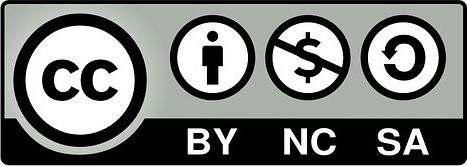Análisis de la dispensación de antibióticos en pacientes ambulatorios en una farmacia comunitaria en Murcia, España
DOI:
https://doi.org/10.17533/udea.vitae.15125Keywords:
Antibacterianos, buenas prácticas de dispensación, automedicación, servicios comunitarios de farmaciaAbstract
Antecedentes: El uso inadecuado de los antibióticos es considerado como una de las principales causas de la aparición de resistencia microbiana. Este es considerado a su vez como un problema de salud pública, y los farmacéuticos tienen una importante oportunidad de intervención durante la dispensación de estos medicamentos. Objetivos: Identificar y resolver las incidencias relacionadas con el uso de antibióticos durante la dispensación en una farmacia comunitaria, y caracterizar el perfil de paciente y tipo de antibiótico solicitado. Métodos: Se realizó un estudio cuasi-experimental (sin grupo control), que incluyó a los pacientes que acudieron a la farmacia a retirar un antibiótico durante el periodo de estudio. La intervención en los pacientes que solicitaban el antibiótico por primera vez consistió en verificar si existían criterios para la no dispensación e informar sobre el proceso de uso del medicamento. En dispensación repetida se evaluó la efectividad y seguridad del antibiótico. En ambos casos se realizó la detección y resolución de incidencias, a través de un episodio de seguimiento. Cuando se solicitó el antibiótico sin receta, se intervino para intentar evitarlo, ofreciendo al paciente otras alternativas. Resultados: El 76,2% (64) de las solicitudes fueron con receta, con una media de edad de 44,5 (DE = 18,2) años, en su mayoría mujeres (65,6%), con estudios universitarios (68,8%). El grupo terapéutico más prescrito fue el de los beta-lactámicos (48,4%), y la infección más frecuente fue la respiratoria (45,3%). El 20,3% (13) del grupo de población que demandó con receta tuvo un episodio de seguimiento; esta incidencia se resolvió en el 100% de los casos. El 23,8% (20) de las solicitudes fueron automedicación, la cual se evitó en un 25% hablando con el paciente. El 58,3% (7) de los pacientes fueron remitidos al médico, mientras que el 41,7% (5) no aceptó la propuesta. Conclusiones: Una de cada cinco dispensaciones de antibióticos tienen algún tipo de incidencia relacionada, y en su mayoría se pueden resolver a través de un protocolo de dispensación. La intervención del farmacéutico puede disminuir la automedicación, ya que se consiguió evitar en uno de cada cuatro casos.Downloads
Downloads
Published
How to Cite
Issue
Section
License
Copyright Notice and Open Access Statement
The Journal Vitae works under the Open Access license, and the published manuscripts remain available for the public, both on the Journal's website and in databases, under the Creative Commons license, "Noncommercial Attribution" and "Share alike" systems, adopted in Colombia. Hence, when the authors agree to publish in the Journal Vitae, they will not have the right to economic retributions on publications and reproductions through different diffusion media. The documents are freely available to the internet public, permitting users to read, download, copy, distribute, print, search, or link to the full texts and pass them as data to software. The only constraint on reproduction and distribution, should be to give authors control over the integrity of their work and the right to be appropriately acknowledged and cited.
Authors declare that:
-
They are the intellectual property owners and are responsible for all the information stated in the article.
-
This manuscript has not been submitted or published in other printed or digital media. They accept the responsibility for the judgments, opinions, and points of view expressed in the published article and, therefore, they exonerate Universidad de Antioquia and Journal Vitae from any process.
-
They exempt Universidad de Antioquia and Journal Vitae from settling conflicts or disputes related to the authorship of the referred article.
-
They accept the revision of the original manuscript by suitable personnel, and they bind themselves to perform the corrections appointed or suggested by the assessors.
-
Therefore, they know the editorial process and will not bind the Editorial Board of the Journal to assume any obligations regarding the volume and issue in which the article is published.
-
They transfer the rights of publication, reprinting, and distribution of the article from the moment of its approval, in print and digital format, without the right to economic rewards, and under the licensing conditions considered relevant by Journal Vitae.
-
They fully authorize Universidad de Antioquia and Journal Vitae to submit the published material to the diverse databases and indexing systems where the Journal can be found to comply with the requirements of the regulatory authorities to maintain the national classification of journals.
-
They will assume the article publication costs established for the current issue, and they will make the payment as soon as they are informed about the volume and the issue in which the final version of the article is published.
-
After the article is published, you can share digital or printed copies in a noncommercial manner. You will be able to use the paper in your institution or company for educational or research purposes, including the use in course programs.
Conflict of interest: Authors are responsible for recognizing and disclosing any financial or other benefits that could be perceived to bias their work, acknowledging all financial support and any personal connections with potential sponsors. Examples of such conflicts include receiving research funds or honoraria, serving on advisory boards, stock ownership, or employment and consulting arrangements. Authors without such connections should clearly state that they have no financial support or personal relationships that could be perceived to bias their work. All conflicts of interest should be disclosed on the author's identification page of the manuscript.










